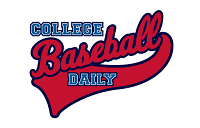FROM PRESS RELEASE
PRINCETON, N.J. — Consistent with its commitment to safeguard the health and wellbeing of student-athletes, the greater campus community and general public, the Ivy League Council of Presidents has decided not to hold league competition or host league championships this spring. While acknowledging that the current public health environment is not compatible with a traditional Ivy League season, the Council has also put in place a process that may allow for limited, local competition during the spring if public health conditions improve sufficiently to allow greater levels of in-person activity at Ivy League campuses.
Athletics training opportunities and practices for enrolled student-athletes will continue to be permitted, provided they are structured in accordance with each institution’s procedures and applicable state and local regulations. This approach is consistent with the phased approach implemented by the Ivy League for all sports in the fall 2020 term.
These decisions are grounded in public health best practices and informed by the pandemic related policies currently in place at member institutions. The ability of the league’s members to continue on-campus operations during the ongoing pandemic requires rigorous limitations on travel, visitors, gatherings, and other elements that are essential for intercollegiate athletics competition.
The following outlines the newly adopted parameters for practice and competition:
- The Ivy League will not be conducting a conference spring season
Due to the ongoing impacts of the pandemic, and in order to maintain compliance both with campus travel, visitor and gathering policies and also with the state guidelines governing each institution, the Ivy League will not conduct conference seasons or conference postseason events in any spring sports.
- Continuance of Ivy League athletics activities phases
Member institutions will continue with the league-wide phases for athletics activities already in place on all Ivy League campuses, subject to individual institutional policies. These phases govern athletics activities including training, practices, and other team and individual activities. While the league’s goal is to work toward local competition in Phase IV, it is currently not permitted on any Ivy League campus.
- Potential opportunities for local spring competition
If public health conditions substantially improve and if permitted by an institution, local non-conference competition may be allowed to occur this spring. These competitions will be subject to league stipulations and must remain consistent with institutional policies for comparable co-curricular activities, including applicable travel restrictions for on-campus students and university visitor policies.
The Ivy League Council of Presidents offered the following joint statement:
As campus and community leaders, we believe that our public health responsibilities and educational principles preclude us from sponsoring Ivy League athletics competition this spring. The public health measures now in effect at all Ivy League universities have been carefully designed to support our teaching and research missions while keeping our students, faculty, staff and neighboring communities safe. These policies include restrictions on travel, limitations on campus visitors, and other pandemic related regulations that are not compatible with the Ivy League’s usual competition schedule. In the Ivy League, these measures must apply equally to our athletics programs along with other academic and co-curricular activities.
We know that this news will come as a disappointment to many in our community. We regret the many sacrifices that have been required in response to the pandemic, and we appreciate the resilience of our student-athletes, coaches and staff in the face of adversity during this difficult and unusual year. While we would like nothing better than to deliver a complete season of competition, these are the necessary decisions for the Ivy League in the face of the health concerns posed by the ongoing and dangerous pandemic. We will continue to monitor the situation as we move forward so that our universities can determine whether Ivy League principles and evolving health conditions might allow for limited, local competition later this spring.
Ivy League Council of Presidents
Christina Paxson, Brown University
Lee Bollinger, Columbia University
Martha Pollack, Cornell University
Philip Hanlon, Dartmouth College
Lawrence Bacow, Harvard University
Amy Gutmann, University of Pennsylvania
Christopher Eisgruber, Princeton University
Peter Salovey, Yale University

